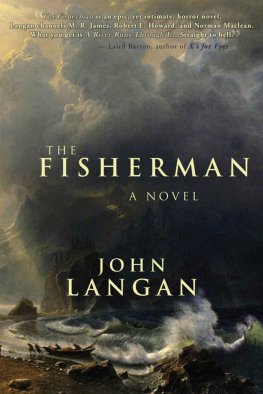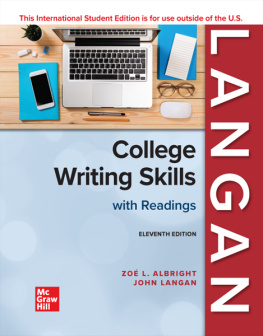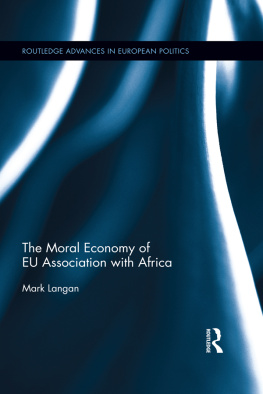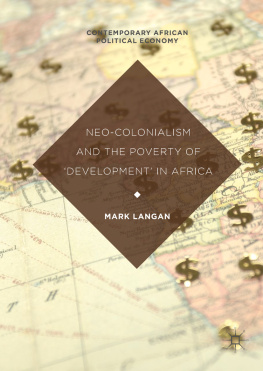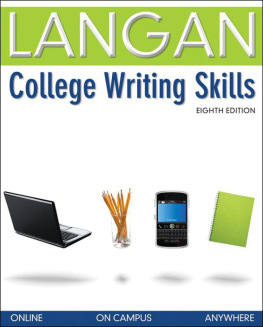Christopher Langan - The Portable Chris Langan
Here you can read online Christopher Langan - The Portable Chris Langan full text of the book (entire story) in english for free. Download pdf and epub, get meaning, cover and reviews about this ebook. year: 2019, genre: Romance novel. Description of the work, (preface) as well as reviews are available. Best literature library LitArk.com created for fans of good reading and offers a wide selection of genres:
Romance novel
Science fiction
Adventure
Detective
Science
History
Home and family
Prose
Art
Politics
Computer
Non-fiction
Religion
Business
Children
Humor
Choose a favorite category and find really read worthwhile books. Enjoy immersion in the world of imagination, feel the emotions of the characters or learn something new for yourself, make an fascinating discovery.

- Book:The Portable Chris Langan
- Author:
- Genre:
- Year:2019
- Rating:4 / 5
- Favourites:Add to favourites
- Your mark:
- 80
- 1
- 2
- 3
- 4
- 5
The Portable Chris Langan: summary, description and annotation
We offer to read an annotation, description, summary or preface (depends on what the author of the book "The Portable Chris Langan" wrote himself). If you haven't found the necessary information about the book — write in the comments, we will try to find it.
The Portable Chris Langan — read online for free the complete book (whole text) full work
Below is the text of the book, divided by pages. System saving the place of the last page read, allows you to conveniently read the book "The Portable Chris Langan" online for free, without having to search again every time where you left off. Put a bookmark, and you can go to the page where you finished reading at any time.
Font size:
Interval:
Bookmark:
- | ND: predicts black box | predicts both boxes|
Subject: |------------------------|--------------------|
takes black box | $l,000,000 | correct | $0 | incorrect |
----------------------------------------------------------------|
takes both boxes | $l,001,000 | incorrect | $l,000 | correct |
|------------------------|--------------------| - ND: AA AB BA BB
--------------------------------------------------
| correct |* correct *| incorrect | incorrect |
A| $1,000,000 |* $1,000,000 *| $0 | $0 |
|--------------|--------------|------------|------------|
B| incorrect | correct | incorrect | correct |
| $1,001,000 | $1,000 | $1,001,000 | $1,000 |
--------------------------------------------------------
Table of Contents
Papers
Essays
Megaboard Discussions
Colloquy Discussions
ISCID Discussions
Miscellaneous
(part 1 and 2)
Response to CTMU Critiques
The Cognitive-Theoretic Model of the Universe:
A New Kind of Reality Theory
Christopher Michael Langan
Contents
Abstract: Inasmuch as science is observational or perceptual in nature, the goal of providing a scientific model and mechanism for the evolution of complex systems ultimately requires a supporting theory of reality of which perception itself is the model (or theory-to-universe mapping). Where information is the abstract currency of perception, such a theory must incorporate the theory of information while extending the information concept to incorporate reflexive self-processing in order to achieve an intrinsic (self-contained) description of reality. This extension is associated with a limiting formulation of model theory identifying mental and physical reality, resulting in a reflexively self-generating, self-modeling theory of reality identical to its universe on the syntactic level. By the nature of its derivation, this theory, the Cognitive TheoreticModel of the Universe or CTMU, can be regarded as a supertautological reality-theoretic extension of logic. Uniting the theory of reality with an advanced form of computational language theory, the CTMU describes reality as a Self-Configuring Self-Processing Language or SCSPL, a reflexive intrinsic language characterized not only by self-reference and recursive self-definition, but full self-configuration and self-execution (reflexive read-write functionality). SCSPL reality embodies a dual- aspect monism consisting of infocognition, self-transducing information residing in self-recognizing SCSPL elements called syntactic operators . The CTMU identifies itself with the structure of these operators and thus with the distributive syntax of its self-modeling SCSPL universe, including the reflexive grammar by which the universe refines itself from unbound telesis or UBT , a primordial realm of infocognitive potential free of informational constraint. Under the guidance of a limiting (intrinsic) form of anthropic principle called the Telic Principle, SCSPL evolves by telic recursion, jointly configuring syntax and state while maximizing a generalized self-selection parameter and adjusting on the fly to freely-changing internal conditions. SCSPL relates space,time and object by means of conspansive duality and conspansion, an SCSPL-grammatical process featuring an alternation between dual phases of existence associated with design and actualization and related to the familiar wave-particle duality of quantum mechanics. By distributing the design phase of reality over the actualization phase, conspansive spacetime also provides a distributed mechanism for Intelligent Design, adjoining to the restrictive principle of natural selection a basic means of generating information and complexity. Addressing physical evolution on not only the biological but cosmic level, the CTMU addresses the most evident deficiencies and paradoxes associated with conventional discrete and continuum models of reality, including temporal directionality and accelerating cosmic expansion, while preserving virtually all of the major benefits of current scientific and mathematical paradigms.
Introduction
Among the most exciting recent developments in science are Complexity Theory, the theory of self-organizing systems, and the modern incarnation of Intelligent Design Theory, which investigates the deep relationship between self-organization and evolutionary biology in a scientific context not preemptively closed to teleological causation. Bucking the traditional physical reductionism of the hard sciences, complexity theory has given rise to a new trend, informational reductionism, which holds that the basis of reality is not matter and energy, but information. Unfortunately, this new form of reductionism is as problematic as the old one. As mathematician David Berlinski writes regarding the material and informational aspects of DNA: We quite know what DNA is: it is a macromolecule and so a material object. We quite know what it achieves: apparently everything. Are the two sides of this equation in balance? More generally, Berlinski observes that since the information embodied in a string of DNA or protein cannot affect the material dynamic of reality without being read by a material transducer, information is meaningless without matter.1
The relationship between physical and informational reductionism is a telling one, for it directly mirrors Cartesian mind-matter dualism, the source of several centuries of philosophical and scientific controversy regarding the nature of deep reality.2 As long as matter and information remain separate, with specialists treating one as primary while tacitly relegating the other to secondary status, dualism remains in effect. To this extent, history is merely repeating itself; where mind and matter once vied with each other for primary status, concrete matter now vies with abstract information abstractly representing matter and its extended relationships. But while the formal abstractness and concrete descriptiveness of information seem to make it a worthy compromise between mind and matter, Berlinskis comment demonstrates its inadequacy as a conceptual substitute. What is now required is thus what has been required all along: a conceptual framework in which the relationship between mind and matter, cognition and information, is made explicit. This framework must not only permit the completion of the gradual ongoing dissolution of the Cartesian mind-matter divider, but the construction of a footworthy logical bridge across the resulting explanatory gap.
Mathematically, the theoretical framework of Intelligent Design consists of certain definitive principles governing the application of complexity and probability to the analysis of two key attributes of evolutionary phenomena, irreducible complexity3 and specified complexity.4 On one hand, because the mathematics of probability must be causally interpreted to be scientifically meaningful, and because probabilities are therefore expressly relativized to specific causal scenarios, it is difficult to assign definite probabilities to evolutionary states in any model not supporting the detailed reconstruction and analysis of specific causal pathways. On the other hand, positing the absolute improbability of an evolutionary state ultimately entails the specification of an absolute (intrinsic global) model with respect to which absolute probabilistic deviations can be determined. A little reflection suffices to inform us of some of its properties: it must be rationally derivable from
Font size:
Interval:
Bookmark:
Similar books «The Portable Chris Langan»
Look at similar books to The Portable Chris Langan. We have selected literature similar in name and meaning in the hope of providing readers with more options to find new, interesting, not yet read works.
Discussion, reviews of the book The Portable Chris Langan and just readers' own opinions. Leave your comments, write what you think about the work, its meaning or the main characters. Specify what exactly you liked and what you didn't like, and why you think so.

